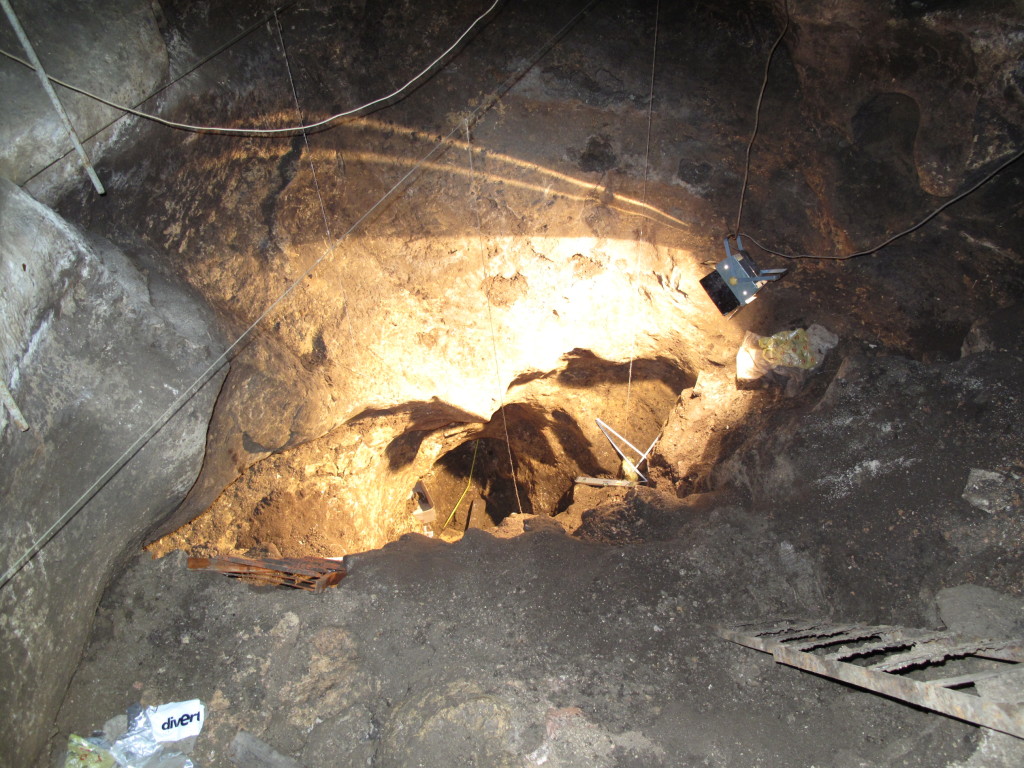
“By wisdom the LORD laid the earth’s foundations,
by understanding he set the heavens in place;
by his knowledge the watery depths were divided,
and the clouds let drop the dew.” Proverbs 3:19-20 (NIV)
“See, I have chosen Bezalel son of Uri, the son of Hur, of the tribe of Judah, and I have filled him with the spirit of God, with wisdom, with understanding, with knowledge and with all kinds of skills – to make artistic designs for work in gold, silver and bronze, to cut and set stones, to work in wood, and to engage in all kinds of crafts.” Exodus 31: 2-5 (NIV)
Reflection
The most common reaction I get when I tell people I am an archaeologist, is ‘I always wanted to be an archaeologist when I was little!’ Since most people later leave that dream behind and find more useful things to do, I sometimes find myself pondering why it is worthwhile to engage in archaeology. After the first excitement of the prospect of digging up treasures has worn away (probably after weeks of finding nothing whilst digging in rock-hard clay in the scorching sun, or alternatively sloppy, slippery clay in the pouring rain), why would a Christian have an interest in pursuing an academic career in archaeology at all?
Archaeologists are interested in how people lived in the past – in particular those parts of the past for which we have no written documents, or those aspects of life in the historical period for which we do not have written descriptions. They study people’s lives and culture through examining all kinds of objects: from cooking pots and other everyday objects, to temples and palaces: human artefacts.
Proverbs describes God’s creative activity using three words: God created by wisdom, by understanding, and by knowledge. These same three words are also used for human cultural activity, for example in the passage that describes the beautiful objects that Bezalel made for the temple of Solomon, but also in another passage in Proverbs about building a house (Prov. 24: 3-4).1 Archaeologists, and for that matter, other scholars in the humanities, therefore study the ways in which people most clearly express the image of God: in the making of culture and the transformation of their environment, however tainted by the fall this activity may be.
Archaeology is arguably also the discipline that does most justice to the great diversity of God’s creation. Of course archaeologists are primarily interested in people and how they lived. But to properly understand human life and culture, you need to have an understanding of all the different aspects of God’s multifaceted works. Human culture is embedded in the landscapes that we inhabit, the materials we use to build houses, make tools, toys, art. Then there is the non-human living world: the foods that we eat, our pets, the small creatures we share our living spaces with.
Whilst many disciplines are at risk of reductionism, losing sight of the wonderful ways in which everything in God’s creation holds together in Christ (Col. 1:17), archaeologists are forced to consider many different aspects of the world in order to piece together the full picture. What is more, to build up a complete account, specialists from many different disciplines have to work together. In this way, archaeology implicitly acknowledges the richness of God’s creation, not least in the complexity of human life and culture. This reflects the Lordship of Christ over all that exists, because God has created a world that is very multi-faceted and everything is intertwined with everything else.
1 Middleton, J.R., 2014: A new heaven and a new earth, Reclaiming Biblical eschatology, Grand Rapids: Baker Academic.
Questions
1. How does your discipline engage with God’s multi-faceted creation? Where is it in danger of inappropriate reductionism? Could a consideration of other facets of creation enrich your discipline?
2. Does your scholarship reflect the image of God that is in you?
Prayer
Lord Jesus Christ, you are the image of the invisible God, the firstborn over all creation. All things have been created through you and in you all things hold together. Fill us with the knowledge of your will through all the wisdom and understanding that the Spirit gives, so that we may live a life worthy of the Lord and pleasing to him in every way.
(from Colossians 1: 9-10, 15-16)
Further Reading
Middleton, J.R., 2014: A new heaven and a new earth, Reclaiming Biblical eschatology, Grand Rapids: Baker Academic.
Adapted from a blog post on the Faith in Scholarship-blog, posted 20 June 2014, http://faithinscholarship.org.uk/a-is-for-archaeology/
Image courtesy of Eline van Asperen
Eline N. van Asperen is a Leverhulme Early Career Fellow at Liverpool John Moores University, United Kingdom. She holds a PhD in archaeology, with a focus on ice age large mammals, but currently researches fossil fungi that grew on animal dung! Originally from the Netherlands, she and her British husband live in Bebington, a village south of Liverpool. Besides her academic work, she is involved in Christian postgraduate ministry through Faith-in-Scholarship (http://www.faithinscholarship.org.uk/) and Transforming the Mind (http://www.christianpostgrad.org.uk).

Leave a Reply